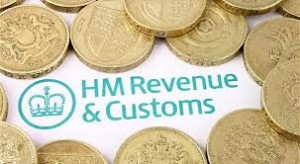HMRC Launches New Site For Those With Undeclared Income
HMRC has launched a new mini-site aimed at those with undeclared income. “We’re closing in” they say, using new technology and additional staff. They follow it up to say “if you have any income you haven’t told us about, you need to declare it before we catch you”. So the site aims to encourage relevant parties to come forwards voluntarily to declare such income, rather than waiting to be discovered. It’s not quite an ‘amnesty’ but it kind of hints at being a better way to deal with the situation. Links are given such as “How do I put it right” which takes them to the main HMRC website page outlining how to put your tax affairs in order.
Other links on the same mini site take visitors to areas such as ‘Owning up to fraud‘ and ‘Tell us about someone who is not declaring all their income” so the net is clearly closing in*. We took a look at the ‘Owning up to fraud’ page and it makes interesting reading. According to the site it seems that it’s better to own up voluntarily when tax fraud has been committed, and enter into what is known as a ‘CDF contract’ with HRMC. By following the terms of the CDF contract, HMRC will apparently agree “not to criminally investigate and prosecute you over the fraud you tell them about in that CDF contract” so clearly it’s better to volunteer such information rather than it being discovered.
HMRC have run adverts on billboards, telephone boxes and bus shelters for 2 weeks aimed at all such people who might have undeclared income.
* According to The Independent, last year HMRC managed to claim back a whopping £21bn from tax avoiders/evaders. This was a significant increase compared to other recent years and signals that the clamp-down on tax cheats is finally bearing significant fruit.
Will there be a rush of visits? Time will tell, in the mean time if you need advice on Tax – get in touch, we are here to help.





 What’s more, Andrew’s many years of experience means that there are few situations that he has not encountered meaning the advice he offers is based on a working knowledge not text book learning.
What’s more, Andrew’s many years of experience means that there are few situations that he has not encountered meaning the advice he offers is based on a working knowledge not text book learning.